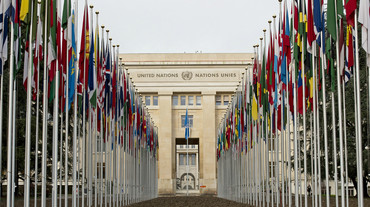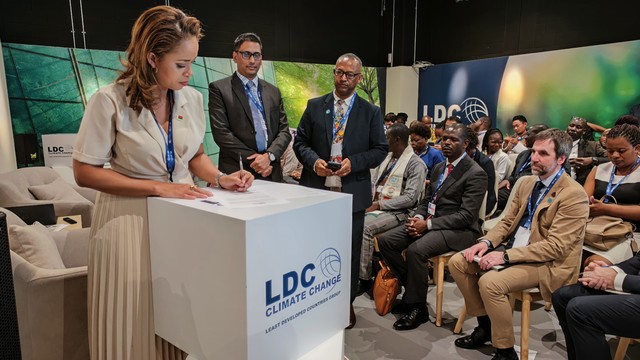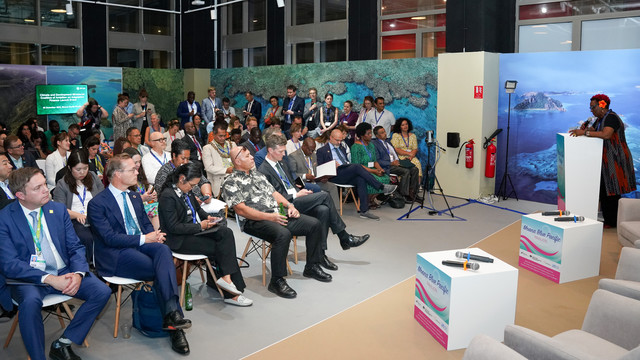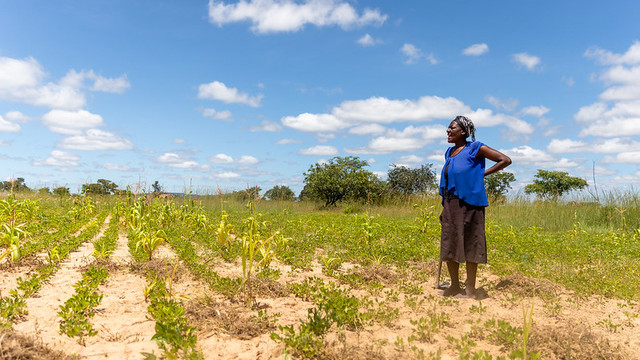Fossil fuel companies rake in $80 billion of taxpayers’ money through shadowy investment tribunals
Calls for reform of ‘investor-state dispute settlement’ ahead of COP28.
Fossil fuel businesses have been awarded more than US$80 billion of taxpayers’ money by claiming their investments could be disrupted by government policy or other changes, according to new analysis by IIED and the Columbia Center on Sustainable Investment (CCSI).
Since 1977, when the first case in the dataset was brought, fossil fuel companies based mostly in wealthy countries have made a total of 349 claims under a process known as investor-state dispute settlement (ISDS) – one-fifth of all known ISDS claims.
Of the 217 cases in which a decision has been reached, 89 resulted in an award of damages for investors and 67 were settled, with a further five where liability was found, but no damages were awarded to the investors.
In Investor-state dispute settlements: a hidden handbrake on climate action, researchers show governments paid out at least $82.8 billion in total, roughly equivalent to the combined GDP of the world’s 45 smallest economies.
States won 28 cases and another 28 were dismissed on jurisdictional grounds. There are 92 cases ongoing. The remainder have either been discontinued or no public data is available for them.
ISDS provisions allow foreign companies to claim compensation if a government takes action they can argue will unfairly affect their bottom lines. Protections for investors may be written into both individual contracts and wide-ranging investment treaties like the Energy Charter Treaty. In many instances in the global South, they have also been embedded in national laws. Contract claims made up 30% of fossil fuel disputes analysed.
Lorenzo Cotula, an IIED principal researcher, said: “The global investment regime can make it more difficult for governments to take climate action and urgently needs reform.
“This may just sound like obscure legal wrangling, but the large amounts in damages the fossil fuel industry often wins through ISDS can divert public money from building resilience to climate change, or remedying the loss and damage suffered by people vulnerable to climate impacts.”
The figure of $82.8 billion is likely just the tip of the iceberg when it comes to ISDS compensation and the true cost to the public will be vastly greater. Full data on the value of settlements was not available, and there are also likely to have been many awards not recorded in public databases.
In addition, states face millions of dollars more in legal fees for every case they fight. Further still, our figures do not include deals made between governments and companies that were precipitated by the threat – even the implicit threat – of potential ISDS arbitration.
Businesses based in just five wealthy countries – the US, UK, Netherlands, Spain and Canada – accounted for half of all claims, while 39% of claims were made against low- or lower-middle-income countries. These nations were also far more likely than richer ones to have been involved in harder-to-track contract-based arbitrations.
More than half of the disputes IIED and CCSI analysed related to the so-called 'upstream' sector of the fossil fuel industry, meaning operations to explore and extract oil, coal or gas reserves. The Energy Charter Treaty was the single most-used instrument for making a claim.
Lea Di Salvatore, a legal researcher at CCSI, said: “If global temperature rise is to be limited to 1.5°C above pre-industrial levels, almost all the fossil fuels still in the ground must stay there. But ISDS is being used to protect a large number of investments that are incompatible with this goal and which represent massive future greenhouse gas emissions.
“Governments agreed a year ago at COP27 to reduce their reliance on fossil fuels, and reforming the ISDS regime is a great place to begin showing they were serious about that.”
Notes to editors
- Read a previous report providing a quantitative analysis of the reliance of the fossil fuel industry on ISDS.
- For more background on ISDS, read IIED’s 2020 report on the subject and IIED's briefing about the upcoming ICJ advisory opinion on climate change.
- Examples of ISDS being used to challenge climate-friendly policies include an American company’s case against Canada over coal phase-out plans, and Rockhopper’s case against Italy over plans to ban offshore oil drilling.
- This story is part of our hidden handbrakes campaign, which is designed to expose and explain the unseen blockers of action on climate change. IIED has launched an interactive platform to enable these obstacles that are holding us back on addressing the climate and nature crises to be highlighted and shared.
For more information or to request an interview, contact Simon Cullen:
+44 7503 643332 or simon.cullen@iied.org





